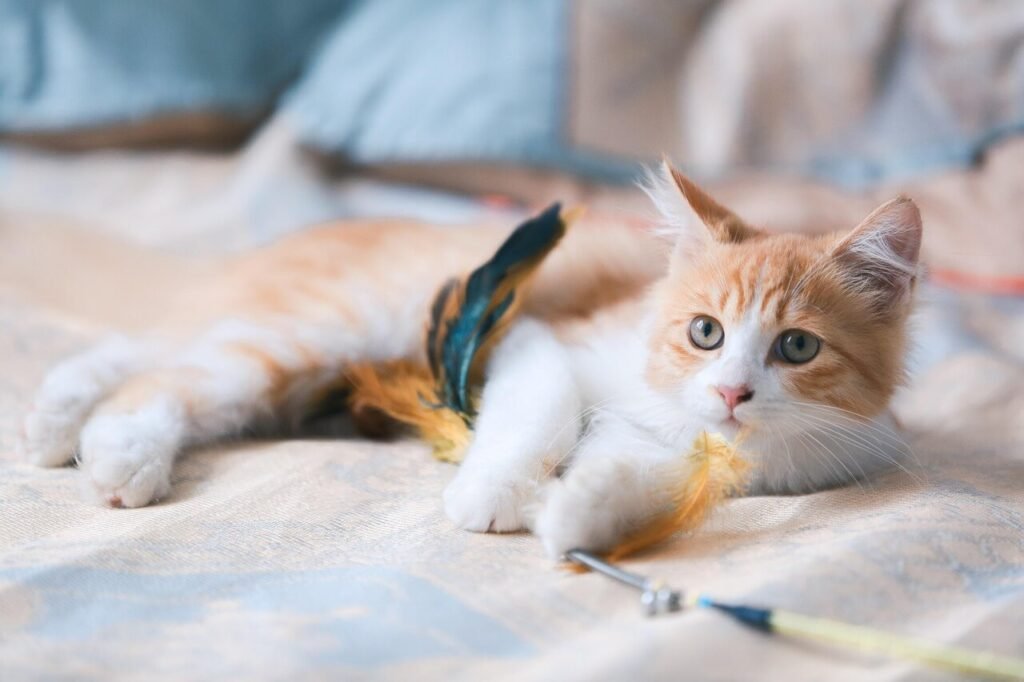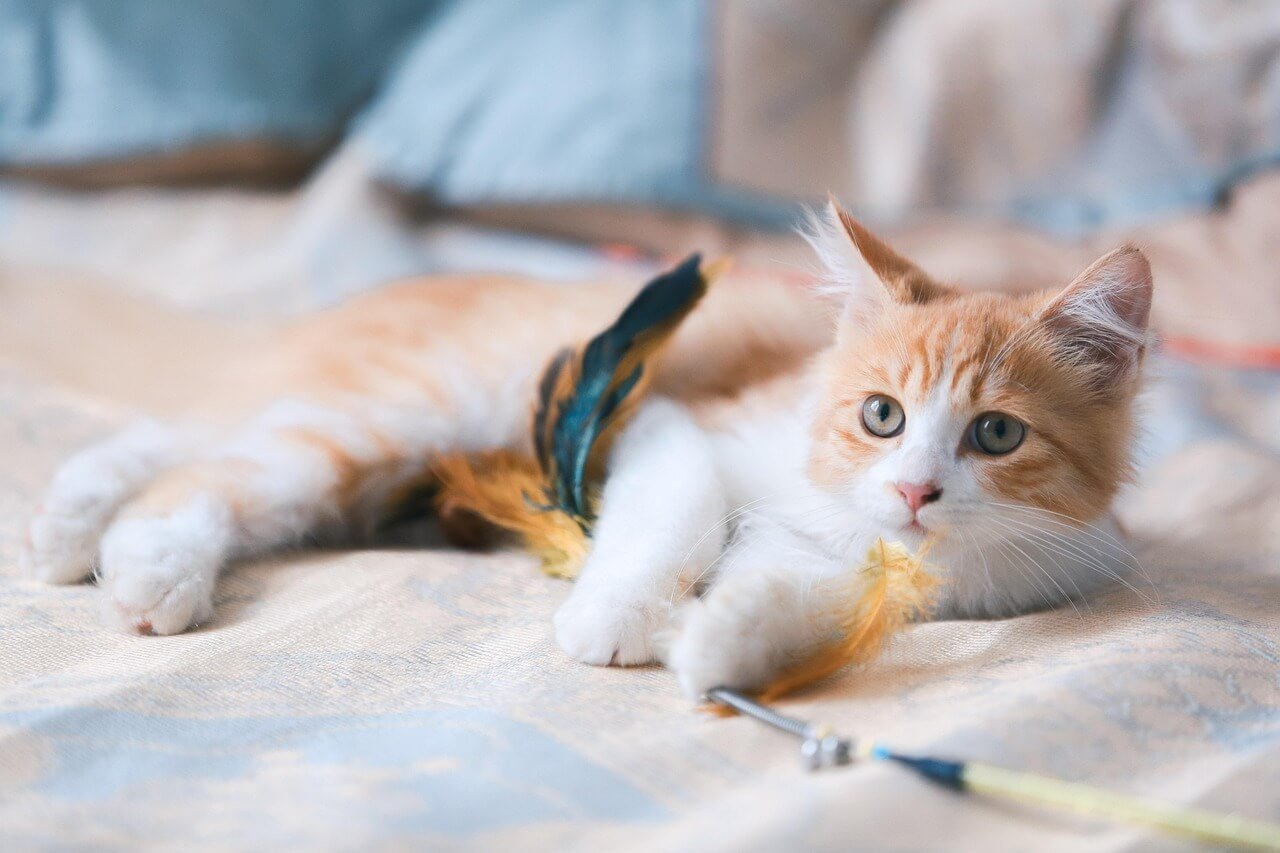Why Does My Cat Bite My Nose?
If you’ve ever woken up to your cat nibbling on your nose—or experienced this quirky behavior during cuddle time—you’re not alone. Many cat owners find themselves wondering why their feline friends engage in this seemingly odd habit. While it might feel playful or even slightly annoying at times, nose-biting is often a form of communication from your cat. Whether it’s a sign of affection, curiosity, or something else entirely, understanding the reasons behind this behavior can help you strengthen your bond and respond appropriately. Let’s explore the fascinating world of feline psychology to uncover what your cat might be trying to tell you through those tiny nose bites.
Common Reasons Why Cats Bite Noses
Cats communicate through actions, and biting your nose is one way they express themselves. Here are some common motivations behind this behavior:
Affection and Bonding:
Cats often use gentle nibbles as a way to show love and affection. A nose bite might simply mean your cat feels close to you.Curiosity About Your Scent:
Your nose is a prominent feature, and cats are naturally drawn to scents. They might bite gently to explore your unique smell.Playful Behavior:
Kittens and young cats, in particular, enjoy playfully nipping. Your nose might just be an easy target for their antics.Seeking Attention:
If your cat wants your focus—whether for food, play, or cuddles—they may resort to nose biting as a way to get noticed.Overstimulation or Stress:
Sometimes, nose biting can indicate overstimulation or mild frustration. Pay attention to your cat’s body language for clues.
Understanding these reasons helps you interpret your cat’s intentions and respond in a way that fosters trust and connection.

How to Respond to Nose-Biting Behavior
When your cat bites your nose, how you react can influence whether the behavior continues or changes. Here are some tips for managing and responding to this quirky habit:
Stay Calm and Avoid Reacting Strongly:
Shouting or pulling away might encourage your cat to see nose biting as a game. Instead, remain calm to avoid reinforcing the behavior.Redirect Their Energy:
Offer a toy or engage in interactive play to redirect their focus away from your face. This satisfies their need for stimulation.Set Boundaries Gently:
If the biting becomes too frequent or uncomfortable, gently say “no” and remove your attention for a short period to teach boundaries.Reward Good Behavior:
Praise your cat or offer treats when they interact with you without biting. Positive reinforcement encourages appropriate behavior.Observe Their Mood Closely:
Watch for signs of stress or discomfort that might be triggering the biting. Addressing underlying issues can reduce unwanted behaviors.
By responding thoughtfully, you can guide your cat toward healthier forms of interaction while maintaining a loving relationship.
Check this guide 👉 Why Do Cats Lick Their Lips? Best 7 Expert Care Tips!
Check this guide 👉 Why Does My Cat Pee Everywhere? Best 7 Expert Tips!
Check this guide 👉 Why Is My Cat Panting in the Car? Best 7 Expert Care Tips!
Positive Aspects of Nose Biting | Potential Concerns to Watch For |
|---|---|
Shows affection and bonding | May indicate overstimulation |
Encourages playful engagement | Could signal stress or anxiety |
Strengthens human-cat connection | Risk of accidental injury if rough |
Helps cats explore scents | Might escalate into aggressive play |
Provides insight into cat’s mood | Can disrupt sleep or relaxation |
Signs That Nose Biting Is Playful vs. Aggressive
Not all nose bites are created equal—it’s important to differentiate between playful nibbles and more serious aggression. Here’s how to tell the difference:
Gentle Pressure vs. Hard Bites:
Playful bites typically involve soft pressure, while aggressive bites are firmer and may cause pain or marks.Relaxed Body Language:
A playful cat will have relaxed ears, whiskers, and tail posture. An aggressive cat may puff up their fur or flick their tail sharply.Accompanying Sounds:
Playful cats often purr or chirp during interactions, whereas aggressive cats may growl or hiss.Context of Interaction:
Nose biting during petting or play is usually playful, but biting out of nowhere could signal irritation or fear.Frequency and Consistency:
Occasional nibbles are normal, but frequent or escalating bites warrant closer observation and possible intervention.
Recognizing these signs allows you to address any issues promptly and ensure harmonious interactions with your cat.
Ways to Prevent Unwanted Nose Biting
If your cat’s nose-biting habit becomes excessive or bothersome, there are proactive steps you can take to discourage the behavior.
Provide Plenty of Toys:
Offering a variety of toys keeps your cat entertained and reduces the likelihood of them targeting your nose for play.Establish a Routine:
Cats thrive on predictability. Set consistent feeding, play, and cuddle times to minimize attention-seeking behaviors.Teach Bite Inhibition:
If your cat bites too hard, immediately stop interacting and withdraw attention. This teaches them that biting ends the fun.Use Positive Reinforcement:
Reward calm and gentle interactions with praise, treats, or affection to reinforce desirable behavior.Consult a Veterinarian:
If the biting seems unusual or excessive, consult a vet to rule out medical issues like dental pain or neurological problems.
By implementing these strategies, you can create a peaceful environment where both you and your cat feel comfortable and understood.
Signs Your Cat Wants to Play
Sometimes, nose biting is a clear indication that your cat is in the mood for playtime. Look for these signs to better understand their intentions:
Pouncing Movements:
Cats often crouch low and wiggle their hindquarters before pouncing—a playful precursor to nose biting.Chasing Objects Around the House:
If your cat is running after toys or imaginary prey, they’re likely seeking interactive play.Biting Feet or Hands Too:
Nose biting combined with nibbling other extremities suggests a desire for physical engagement.Meowing or Chirping Loudly:
Vocalizations paired with energetic behavior signal excitement and a readiness to play.Bringing You Toys:
A cat dropping a toy near you is a direct invitation to join in the fun.
Recognizing these cues ensures your cat gets the mental and physical stimulation they crave.
How to Strengthen Your Bond Beyond Nose Biting
While nose biting can be endearing, building a deeper connection involves nurturing trust and mutual understanding. Here are some ideas to enhance your relationship:
Daily Quality Time:
Spend dedicated time each day engaging with your cat, whether through play, grooming, or quiet cuddling.Learn Their Preferences:
Observe what activities your cat enjoys most and incorporate them into your routine.Respect Their Space:
Give your cat opportunities to retreat and recharge independently, respecting their need for personal space.Offer Treats and Rewards:
Use treats sparingly to celebrate good behavior and reinforce positive associations.Engage in Interactive Play:
Use wand toys or laser pointers to simulate hunting scenarios, satisfying their natural instincts.
These efforts foster a stronger emotional connection and mutual trust.
When to Seek Professional Help
In rare cases, persistent or aggressive nose biting may require professional intervention. Consider consulting an expert if you notice the following:
Sudden Changes in Behavior:
If your friendly cat suddenly starts biting aggressively, it could indicate stress or illness.Excessive Aggression:
Frequent or severe biting that doesn’t improve with training may necessitate behavioral therapy.Underlying Medical Issues:
Conditions like dental disease or neurological disorders can manifest as unusual biting behavior.Difficulty Managing the Behavior:
If traditional methods fail to curb the biting, a certified animal behaviorist can offer tailored solutions.Impact on Daily Life:
If the behavior disrupts your ability to care for or enjoy spending time with your cat, seek guidance promptly.
Professional support ensures your cat’s well-being and strengthens your shared bond.
Frequently Asked Questions About Nose Biting
Why does my cat only bite my nose and not other parts of my face?
Cats often target areas that are easily accessible or warm, like the tip of your nose. This behavior is usually harmless and driven by curiosity or affection.
Should I punish my cat for biting my nose?
Punishment isn’t recommended, as it can damage trust. Instead, redirect their behavior and reinforce positive interactions.
Can nose biting indicate aggression?
Not necessarily. While rare, aggressive biting is typically accompanied by growling, hissing, or flattened ears. Observe your cat’s overall demeanor to determine intent.
Do certain breeds bite noses more than others?
There’s no evidence linking specific breeds to nose biting. However, individual personalities and experiences play a significant role.
What if my cat’s nose biting hurts?
If the bites are painful, avoid pulling away abruptly, as this can excite predatory instincts. Instead, freeze momentarily and then redirect their focus.
Building a Deeper Connection Through Understanding
Nose biting is just one of many ways your cat communicates their feelings and needs. By observing their behavior, responding appropriately, and addressing any underlying issues, you can turn this quirky habit into an opportunity to strengthen your bond. Remember, every cat is unique, and patience is key to fostering a harmonious relationship. With love, consistency, and a little humor, you’ll come to appreciate the special moments—even those involving a playful nip on the nose.
Cat Anaphylactic Shock Treatment Costs: Best 7 Expert Tips! – Learn about costs, treatments, and financial aid options to save your cat’s life.
Exocrine Pancreatic Insufficiency in Cats: Best 7 Tips! – Learn to spot symptoms, manage EPI effectively, and improve your cat’s quality of life with expert advice.
Cost of Dog Anaphylactic Shock Treatment: Best 7 Tips! – Learn about emergency costs, financial planning, and ways to manage expenses for your dog’s care.
Exocrine Pancreatic Insufficiency in Dogs: Best 7 Tips! – Learn to spot symptoms, manage EPI effectively, and improve your dog’s quality of life with expert guidance.





